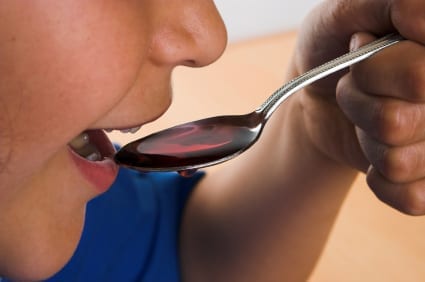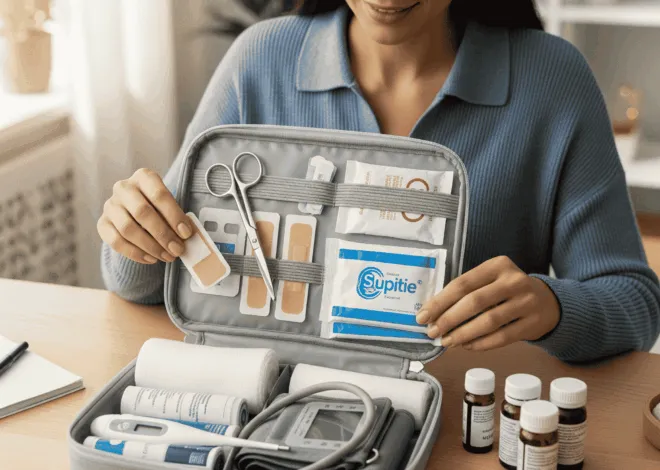Does your daughter have a weird-sounding cough you’ve never heard before? Is your son suffering from a cough/cold combo that he just can’t seem to kick? Never fear, THE COUGH EXPERT is here! Dr. Peter Dicpinigaitis is nationally recognized as the cough guy–he’s a practicing internist (doctor of internal medicine), a pulmonary critical care specialist, and a professor of clinical medicine at the Albert Einstein College of Medicine in New York.
Not only is he the founder and director of the Montefiore Cough Center, which is one of the only centers of its kind in the world, but he is also leading research to discover the cure to chronic cough. If you don’t believe us yet that he really is the expert, maybe this will convince you: Dr. Dicpinigaitis helped write the guidelines published by the American College of Chest Physicians and the European Respiratory Society. This guy’s a big deal! And ModernMom was lucky enough to get an interview with him, so read on for some expert advice…
.jpg) ModernMom: Tell us a bit about your research.
ModernMom: Tell us a bit about your research.
Dr. Dicpinigaitis: In my lab, we can measure the sensitivity of the cough reflex by using a methodology called capsaicin cough challenge testing. Using this model, we induce cough in subjects by having them inhale capsaicin, the active ingredient in hot chili peppers. Measuring cough reflex sensitivity allows us, for example, to test whether a drug is an effective cough suppressant, and allows us to compare different subject groups in terms of cough sensitivity.
MM: What is the best way to prevent a cold? How can we prevent our children from getting colds?
DD: Natural remedies, such as Vitamin C, Zinc and Echinacea, are frequently used to try to prevent cough and cold symptoms. But, in fact, studies have not shown conclusively that these products have an effect on a person’s ability to stave off a cold.
A cold is hard to avoid, but a cold virus is most commonly transmitted by direct hand-to-hand or hand-to-surface contact, so keeping hands clean is critical to preventing the spread of germs. It is also important to stay hydrated and get enough rest.
MM: What is the best way to treat a cough?
DD: Most coughs will come and go on their own, but some people find themselves with nagging coughs that linger and become increasingly disruptive. In those cases, medication may be the best way to manage symptoms. Over-the-counter drugs are one option or, if it’s an extremely troublesome cough, consider talking with a doctor about prescription cough suppressants.
It is always important to use great care when dealing with cough and cold medicines, particularly those in liquid form. Taking more than the recommended dose of cough medicine raises risks of certain dangers, including increased blood pressure with over-the-counter medications and respiratory depression with prescription products–and taking less than the recommended dose can be ineffective.
When treating my own patients, I recommend oral capsules or tablets as an alternative to liquid medicine, because these formulations offer accurate, consistent dosing to relieve symptoms. This is true for both OTC and prescription medications.
MM: Children tend to cough a lot at night. How can I help them sleep? Do humidifiers help?
DD: Using a humidifier in your bedroom can be a great help. For some people, the coughing at night comes from having a dried-out throat. If you use a humidifier in the bedroom as you try to sleep, the air will be less dry, and you will have an easier time reducing the cough as you try to sleep. Another option that could help is to prop your head up higher than your body while you sleep.
MM: If my child has asthma, can he still play sports?
DD: Generally speaking, asthma should not preclude most children from participating in sports. However, this issue must be overseen by your pediatrician in terms of the need for medication for asthma, whether it be standing medication used daily, or medication used only before engaging in a physical activity. Your pediatrician will also determine whether a consultation with a pediatric pulmonologist (lung specialist) is appropriate.
MM: What is the best way to soothe a sore, dry throat caused from coughing?
DD: Since viruses are the major cause of sore throats, there are no medications to cure them. There are however, certain natural remedies that will alleviate your sore throat while your body fights off the infection. Hot liquids, like tea with lemon or honey, can be soothing to an irritated throat. The honey will coat your throat and the lemon juice will quickly numb it. Many sore throat sufferers find that lozenges are useful as well. Other solutions that might work are: cayenne pepper and water, chicken soup, and peppermint tea.
MM: How can we stop a coughing fit?
DD: If the cough just isn’t going away, a cough suppressant medication may be the best option to help you feel better and reduce the risk of transmitting germs.
Persistent, post-cold coughs are not uncommon. They are known as postinfectious coughs, sometimes characterized by a tickling feeling in the throat.
Visit your physician if the cough persists. And, if you’re given a prescription, make sure you understand how it is supposed to help you. Patients often ask for antibiotics, but colds are caused by viruses, not bacteria. Over 200 viruses are known to cause the common cold, and antibiotics don’t treat any of them. In fact, taking antibiotics when you don’t need them may do more harm than good.
MM: Is there anything else you would like to add?
DD: I’d like to reemphasize the importance of accurate dosing for cough and cold medications. For both prescription and over-the-counter drugs, taking too little can be ineffective, and taking too much can result in respiratory depression or other serious complications.
A recent study published in the Journal of the American Medical Association found that although 71% of children’s cough/cold products included a measuring device, nearly all products examined (98.6%) contained one or more inconsistencies between the dosage outlined in the directions and that marked on the device. Due to these inconsistencies, or for the sake of convenience, parents likely end up dosing with a household spoon, which often leads to inconsistent measuring.





